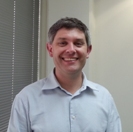Aspects of Aluminium Smelting from process control to environment issues
27 May 2014, Tehran
 Professor Margaret Hyland Professor Margaret HylandAssociate Director of the Light Metals Research Centre, The University of Auckland, New Zealand |
 Dr. Mark Dorreen Dr. Mark DorreenOperations Director of the Light Metals Research Centre, The University of Auckland, New Zealand |
Topics:
1)Introduction and course aims
2)Alumina – properties and their impact on the process
3)Process Control – a western perspective, and generational improvements in control philosophy
3.1)Evolution of process control philosophies, Gen 1-3
3.2)Alumina feed control
3.3)Cell performance comparisons
4)Anode carbon, and the impact of common anode faults on pot operation
4.1)Carbon in anodes and cathodes
4.2)Anode consumption
4.3)Anode Faults and their impact on operations
5)Importance of ancillary operations – rodding room, crushed bath and anode cover preparation
5.1)Importance of good rodding room practice
5.2)Optimal cover production and use
6)Environmental issues and the minimization of fluoride losses
6.1)Contributions and composition of fluoride emissions
6.2)Generation of gaseous and particulate fluorides
6.3)Minimising fugitive fluoride emissions
7)Conclusions and Discussion
About instructors:
Professor Margaret Hyland is the Associate Director of the Light Metals Research Centre and works with international aluminium companies around the world, specialising in environmental and materials performance.
She also has a broad interest in surface engineering and surface processes involving adhesion. She currently holds the position of Deputy Dean for the Faculty of Engineering and is a past Associate Dean of Research for the faculty and Academic Director of the Research Centre for Surface and Materials Science.
She was the winner of 4 TMS Awards and has published over 60 papers and over 80 technical reports.
Research interests :
-Aluminum Reduction Technology: Generation and capture of fluoride and sulphur gases, optimisation of dry scrubbing, potroom dust, optimisation and performance of high temperature materials and inert anode materials.
-Surface Engineering: High velocity thermal spray coatings, formation and adhesion mechanisms, coatings for anti-fouling applications, surface chemistry and adhesion to metal surfaces and surface analytical technique
Dr Mark Dorreen has overall responsibility for all commercial activities and the daily running of the Light Metals Research Centre at the University of Auckland in New Zealand.
With 16 years of industrial practice, and experienced in aluminium smelter operations, Dr Dorreen has consulted at more than 20 aluminium smelters worldwide on various aspects of potlines and carbon plant practices and technology. Particular focus has been on anode quality, rodding room equipment, and potroom operating practices. Plant audits, improvement projects and environmental issues have been addressed in both western and Chinese situations. Dr Dorreen is also involved in Light Metals Research Centre developed “Shell Heat Exchanger” technology, and the smelter implementations carried out to date.
Dr Dorreen also has a broad experience in technical, commercial and logistic roles in heavy
industries including electric arc furnace steelmaking and refractory selection, installation and performance monitoring.
His PhD focussed on continuous measurement of current efficiency and the changing nature of pot gases formed approaching anode effect in a laboratory aluminium smelting cell.
